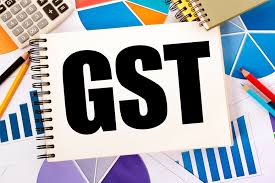CBIC issues guidelines for scrutiny of GST returns for FY18, FY19
"Till the time a module for online scrutiny of returns is made available on the CBIC-GST application, as an interim measure, the following Standard Operating Procedure (SOP) is being issued by the board in order to ensure uniformity in selection/ identification of returns for scrutiny, methodology of scrutiny of such returns and other related procedures," the CBIC said.
It said that selection of returns for scrutiny is to be based on specific risk parameters. The Directorate General of Analytics and Risk Management (DGARM) has been assigned the task to select the GSTINs registered with central tax authorities, whose returns are to be scrutinised, and to communicate the same to the field officers from time to time. The guidelines aim to ensure that during the scrutiny, the interface with the taxpayer be kept minimal and data/details made available through various sources like DGARM, GSTN, e-way bill portal, etc. be relied upon for this purpose.
In case any discrepancies are found, a notice may be issued by the department quantifying the amount of tax, interest and any other amount payable in this regard. Also, such communication should be specific in nature. Experts have mixed opinions on the new guidelines.
"This SOP only details the broad guidelines to be followed by central tax officers; however, eyeing the current GST landscape, officers would need a more technology-driven holistic handholding for assessments," AMRG & Associates Senior Partner Rajat Mohan said, adding, the CBIC has clearly stipulated that even after almost half a decade of GST implementation, online scrutiny module is not ready.
Nangia Andersen India Director-Indirect Taxation Tanushree Roy said, such structured guidelines are expected to help both the department as well as the assessee to ensure that fraudulent activities are kept at bay and at the same time the scrutiny is completed by the tax officers within a given time frame. "It would, however, be interesting to see the degree of implementation of the said SOPs by the tax authorities," Roy added.
Source:https://www.moneycontrol.com/news/economy/policy/cbic-issues-guidelines-for-scrutiny-of-gst-returns-for-fy18-fy19-8266691.html
Download our App to get knowledge updates: https://play.google.com/store/apps/details?id=com.app.gstmitra
Join Our Telegram Channel for more updates:https://t.me/praveengst:
Ads by




Comments
Post a Comment